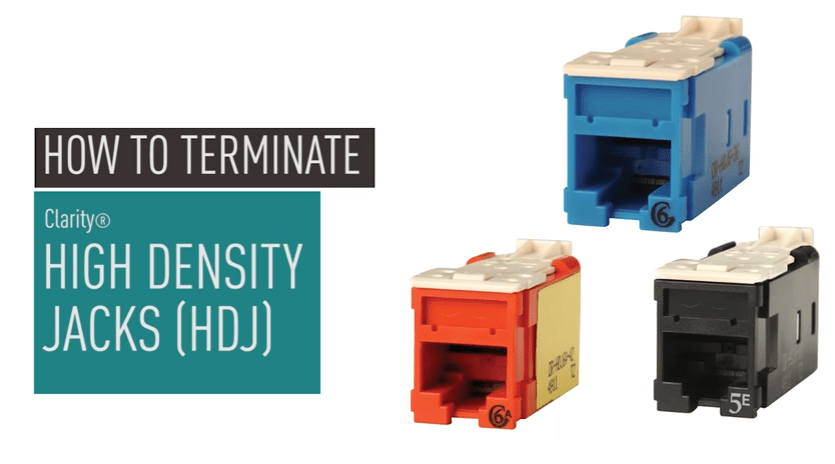In the world of IT, where network connectivity is crucial for businesses, the importance of cable certification cannot be overstated. A failing Ethernet cable can disrupt an entire office, causing downtime and communication issues. To avoid such problems, cable certification plays a vital role in maintaining a reliable and efficient network infrastructure. In this article, we will explore what cable certification is, how it is performed, and the reasons why it is essential for any network cabling, whether old or new.
Understanding Cable Certification
When installing copper or fiber cables to connect telecommunications and data networks, adherence to specific standards is crucial to ensure proper installation. Cable certification is the process of confirming that low-voltage structured data cabling is installed, connected, and functioning correctly.
Similar to rewiring a room in a home, where proper wiring guidelines must be followed to avoid future issues, cable certification provides guidelines to ensure the correct installation and performance of network cabling.
Related Link: Fiber Optics vs Copper Cabling Compared
Three Main Areas of Cable Certification
Cable certification encompasses three main areas, which are established by manufacturers and technicians:
● Component Standards: These standards define the performance criteria for jacks, outlets, and plugs used in network cabling.
● Cable Standards: Cable standards define the performance of the bare cable itself, ensuring it meets specific requirements.
● Cabling Standards: Cabling standards determine the performance of the connected components and the cable once it is installed.
Tools Used for Cable Certification
Certifying the proper connection and desired bandwidth requires specialized tools used by technicians. Two notable handheld cable certification tools developed by Fluke will be discussed:
● Fluke DTX-1800 CableAnalyzer™: Although this older model has been retired, it served the purpose of ensuring network cables were correctly installed and communicating. By operating 3x faster than other Cat6 testers and 5x faster for testing fiber cable, it significantly decreased testing time.
● Fluke DSX-5000 CableAnalyzer™: This newer model offers several enhanced features, such as a touch screen, battery bypass, and Level V accuracy. The DSX-5000 provides a comprehensive solution for cable certification and further reduces diagnostic testing times.
Looking to elevate your business to the next level? Contact us today.
The Importance of Cable Certification
Skipping cable certification can lead to unreliable network installations and costly consequences. Here are four key reasons why cable certification is crucial:
● Cost-Effectiveness: Investing in cable certification is a proactive measure that prevents future problems. Repairing improperly certified cables later can result in expensive repairs and prolonged downtime, leading to significant costs for your business.
● Longevity of Network Infrastructure: Recertification of cabling can reveal that it supports higher-speed traffic than initially anticipated. This means that cables designed to support lower data speeds may actually comply with higher-speed requirements upon recertification. By recertifying cables, replacement costs can be reduced in the long run.
● Optimal Speed and Productivity: A slow network can hinder office productivity, wasting valuable time for employees waiting on a network that underperforms. Cable certification ensures that your network cabling is operating at its intended speed, allowing for seamless data transfer and high productivity levels.
● Protection Against Inferior Products: Some cable suppliers may sell no-name brands that claim to meet industry standards, such as Cat5 or Cat6. However, these cables may be made with inferior materials and fall short of the claimed specifications. Cable certification conducted by professionals ensures that the cables meet industry standards, protecting your network from catastrophic failures caused by subpar products.
Maintaining a High-Performing Network
If you are uncertain whether your network cabling has been certified, it is never too late to have it checked. Cable certification and recertification provide numerous benefits, including cost savings, improved network speeds, and protection against unreliable products. By ensuring that your network cabling is up to spec, you can guarantee the reliability and efficiency of your network infrastructure.
Related Link: What is an Electrical Switchgear?
Benefits of Professional Cable Certification Services
While it may be tempting to attempt cable certification in-house, seeking professional cable certification services offers several advantages. Here are some key benefits of relying on experts for cable certification:
● Expertise and Knowledge: Professional technicians have extensive knowledge and expertise in network cabling standards and best practices. They are trained to identify potential issues and ensure that cables are installed and connected correctly. By leveraging their expertise, you can have peace of mind knowing that your network infrastructure is in capable hands.
● Time and Cost Savings: Professional cable certification services save you valuable time and resources. Technicians can efficiently perform cable certification, reducing downtime and minimizing disruptions to your business operations. Additionally, by identifying and resolving any issues early on, you can avoid costly repairs or replacements in the future.
● Compliance with Industry Standards: Network cabling must adhere to specific industry standards to ensure reliable and efficient performance. Professional cable certification services guarantee compliance with these standards, protecting your network from potential vulnerabilities and ensuring that your infrastructure meets industry requirements.
● Documentation and Reports: When you engage professional cable certification services, you receive comprehensive documentation and reports detailing the results of the certification process. These reports serve as valuable records, providing proof of compliance and facilitating future troubleshooting or upgrades.
● Continued Support and Maintenance: Cable certification services often offer ongoing support and maintenance for your network infrastructure. They can assist with regular inspections, and recertification, and address any issues that may arise. This proactive approach ensures the longevity and reliability of your network.
Wanting to learn more about the Technology industry? Check out our blog today.
Understanding Cable Certification
Cable certification is an essential process for maintaining a reliable network infrastructure. It ensures that low-voltage structured data cabling is installed, connected, and performing correctly. By following specific standards and using specialized tools, technicians can certify the connection and bandwidth of network cables. Skipping cable certification can lead to costly repairs, decreased longevity of network infrastructure, reduced speed and productivity, and potential risks associated with inferior products. To ensure optimal network performance, cable certification is a vital step that should never be overlooked. By investing in cable certification, businesses can prevent network issues, reduce costs, and maintain a high-performing network environment.
Related Link: Server Room Humidity: Learn Critical Humidity Control
Last Updated on August 21, 2023 by Josh Mahan




